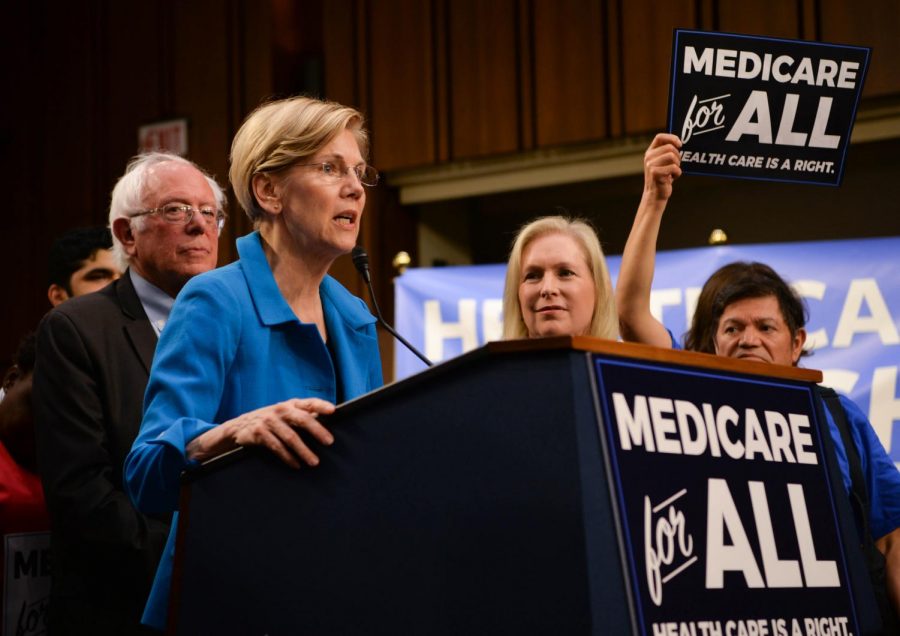Democrats Attempt to Reach Common Ground
Photo Courtesy of Senate Democrats
Sen. Elizabeth Warren, D-Mass., speaks on the platform of Medicare for All, which raises taxes for middle and upper-class, but brings the overall costs of affording healthcare down.
January 14, 2020
The seventh Democratic debate, hosted by CNN and The Des Moines Register, will take place on Jan. 14 at Drake University, where six candidates (Joe Biden, Pete Buttigieg, Amy Klobuchar, Bernie Sanders, Tom Steyer and Elizabeth Warren) will present their stances on national issues such as climate change and healthcare.
In the December Democratic debate, there were clashes between candidates, but they maintained unity at times to appeal to the nation and to propose new reforms as a party. Specifically, candidates did not face any disparities on one notable topic: Donald Trump’s presidency.
As the last debate took place a day after the House of Representatives approved a formal charge against the president, impeachment was the first topic to be addressed. There was a unanimous agreement as all candidates supported the impeachment process. Some candidates like Buttigieg wanted to revive the spirits of the citizens in the midst of turmoil.
“It is important for the Democrats to stay united so that they can succeed in winning the election and removing President Trump from office,” senior Alex Cherry said. “Even if someone drops out of the race or falls into a scandal, people will remain loyal to the remaining nominees and to the party because they want the President removed from office.”
Another issue that the candidates united on as a collective was the reality of climate change and its adverse effects. The candidates agreed that there must be immediate action to tackle climate change with candidate Steyer being the most eager to take action, claiming that he will prioritize climate change as the most urgent issue to be addressed in the first 100 days of his presidency.
Beyond climate change, other topics such as healthcare attempted to bring in people that do not have coverage or easy access to medical professionals. Although the candidates did have some disagreements over Sen. Sanders’ Medicare For All, on the surface, the efforts to bring back the national healthcare system advocates for people that may not be able to afford the current privatized healthcare programs.
“We are living in a nation increasingly becoming an oligarchy, where… you have more income and wealth inequality today than at any time since the 1920s. We are the only major country on earth, not to guarantee healthcare for all people, which is why we need Medicare for all,” Sen. Sanders, D-Vt., said during the debate.
Some Democrats like candidate Yang, the only non-white candidate on the stage of the most recent debate, acknowledge the fact that equal representation is a crucial part of a true democracy. With this in mind, the candidates are also forced to answer the question of how to restore the nation and give voices to the underprivileged groups, whether it is through race, sexual orientation, socioeconomic status or other factors.
“I think that in order for us to move forward, we have to be able to disrupt and challenge things that are not working, but we have to work together to change,” social studies teacher Virginia Nguyen said. “There’s some key concepts and themes that always unite [its citizens], which is the theme of progress and hope.”
















